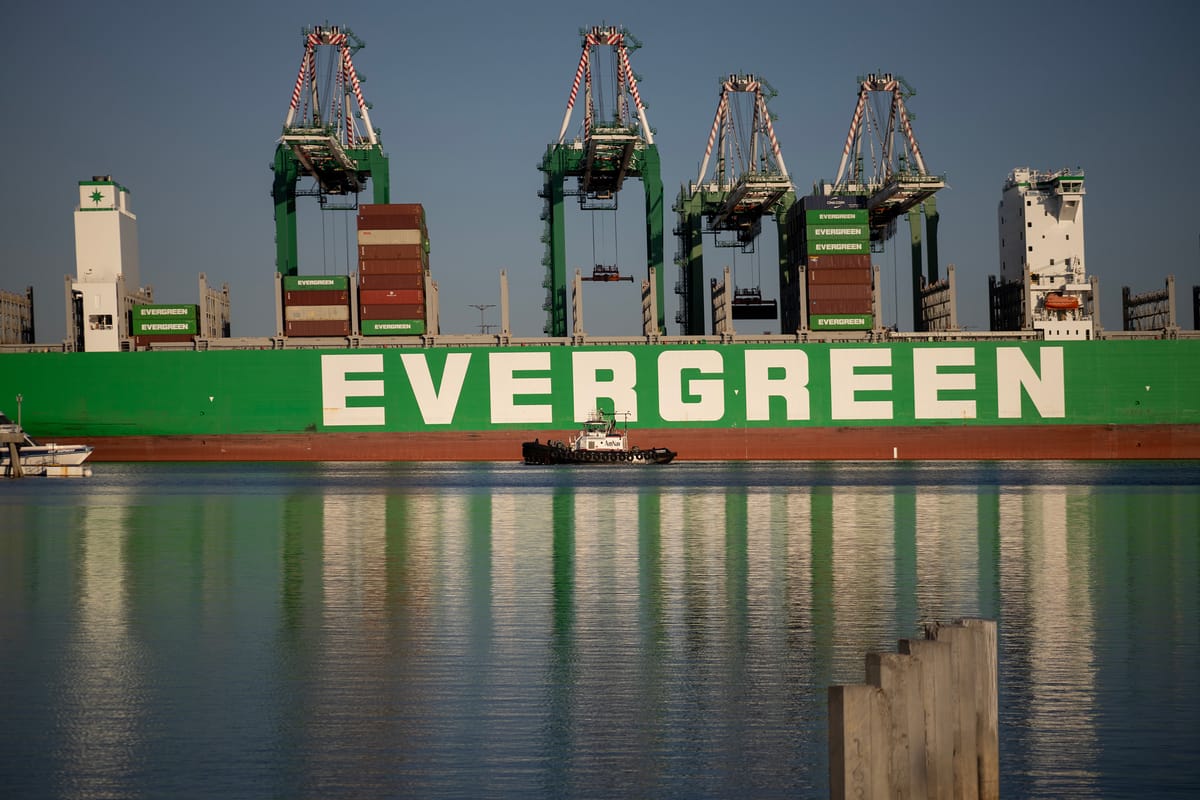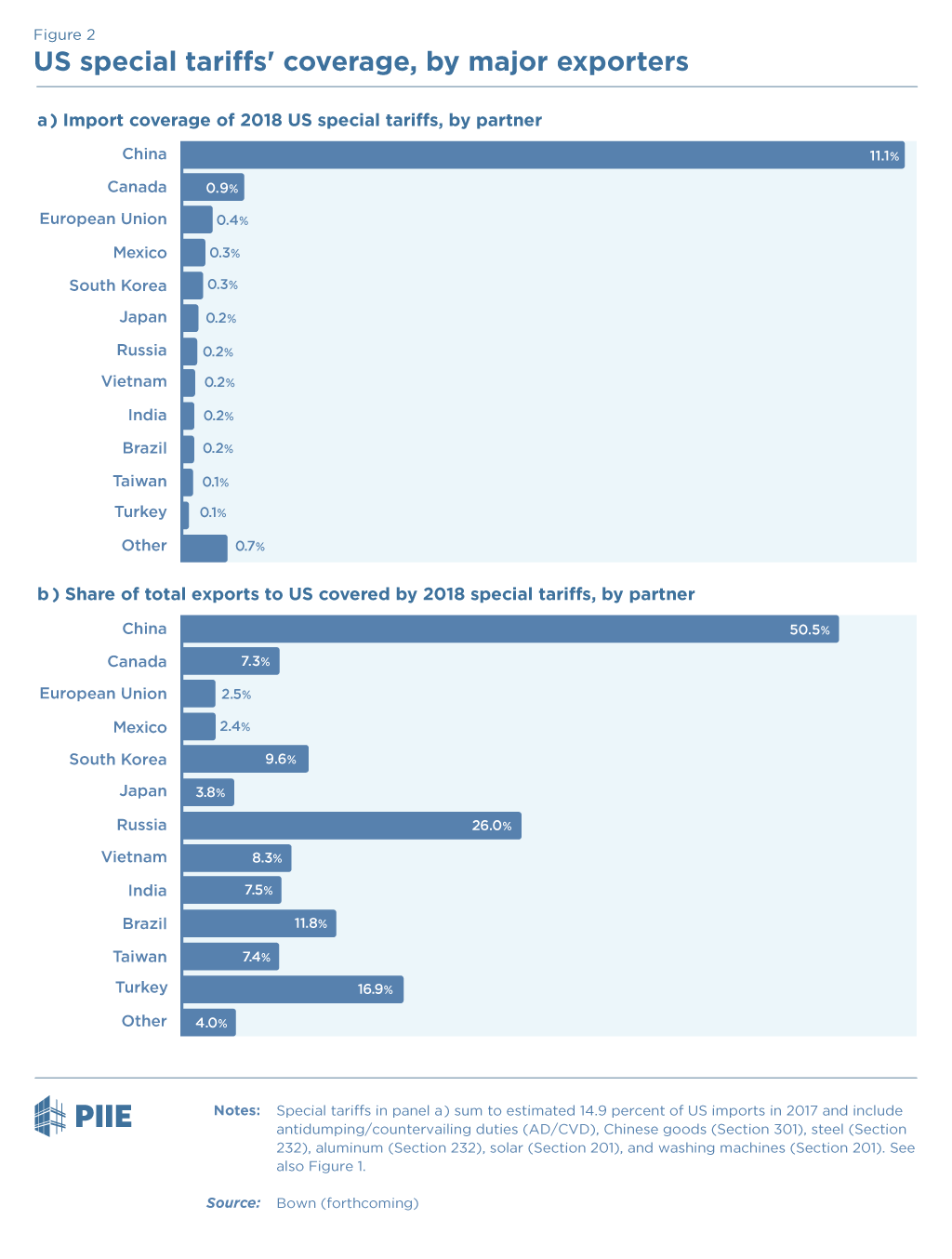‘Uncertainty’ and ‘disruption’: Experts continue to sound the alarm on sweeping Trump tariffs
Port of Los Angeles officials, business executives and others warn that tariffs on all imports as proposed by President-elect Donald Trump would increase prices for U.S. consumers.

U.S. consumers will face increased prices on many items should the incoming Trump administration follow through on the president-elect’s proposal to impose tariffs on all imports into the country, leading experts continue to warn.
During a media briefing Wednesday, Port of Los Angeles Executive Director Gene Seroka and Mary Lovely, a leading economist on tariffs and U.S-China economics, discussed the potential impacts of a tariff-forward trade policy.
“We’re looking ahead to a period that we think will be very active for trade policy, and that's going to cause a lot of headaches,” Lovely said, adding that “uncertainty” and “disruption” are at the forefront of her mind when considering Trump’s proposal.
“We expect the new administration will get to work right away, particularly on tariffs on China,” she said.
In 2018, many of Trump’s tariffs were focused on specific goods and resources, including steel, solar panels, washing machines, certain food products and more. China bore the brunt of the tariffs, with hundreds of billions in new taxes on Chinese goods.
Despite being critical of them, the Biden administration left many of Trump’s tariffs in place. In fact, in September, the administration added tariffs on many Chinese products, including solar cells, semiconductors, medical supplies, electric vehicles and lithium-ion batteries.

While Trump’s tariff strategy for his upcoming term has not been solidified, he has suggested imposing even higher tariffs on China — upward of 60% — as well as up to 20% on all imports from every other country, a far more drastic stance than his first term or Biden’s recent updates.
Amid Trump’s previous trade war, companies diversified where they were receiving goods from, subverting large Chinese tariffs. Tariffs on all nations will take that option off the table, which will force retailers to pass additional costs onto the consumer, business leaders say.
Executives at Walmart, the nation's leading retailer, said slapping tariffs on all imports would cause the company to raise prices on at least some of its merchandise.
“We never want to raise prices,” Chief Financial Officer David Rainey said in an interview with CNBC on Tuesday. “Our model is everyday low prices. But there probably will be cases where prices will go up for consumers.”
During an earnings call Tuesday, Lowe’s CFO Brandon Sink said about 40% of the company’s cost for sold goods is from outside the U.S., meaning tariffs would add product costs, according to Axios.
Benzinga reports that Autozone CEO Philip Daniel said the company “will pass those tariff costs back to the consumer.”
Lovely, a senior fellow of the Peterson Institute for International Economics and professor emeritus of economics at the Maxwell School of Citizenship and Public Affairs of Syracuse University, said sweeping tariffs would negatively affect U.S. exports as well as imports. Seroka agreed, noting that under Trump’s initial tariffs, the port saw a 16% drop in business.
During a press conference last week, Port of Long Beach CEO Mario Cordero, who was vocal in his opposition to Trump's 2018 tariffs, said they resulted in a 20% decrease in two-way trade with China.
One of the more interesting moves proposed by Trump is a threat against companies importing goods from Mexico, a country Trump’s previous administration negotiated a trade deal with. Trump himself signed the United States–Mexico–Canada Agreement, or USMCA, in October 2018.
The agreement took effect on July 1, 2020 with a 16-year term. That agreement, however, may be on the chopping block, Lovely noted, adding that Mexico is a “vital” trade partner, especially when it comes to transportation equipment.
“When you have trade disputes, that creates uncertainty," Cordero said last week, adding: “I’ve said this before and I’ll say it again: No one wins in a trade war."
Trump’s stated goal for tariffs is to bring more production back to the U.S., Lovely noted. Producing products in the U.S., however, is more expensive, so even if that goal is achieved, consumers will still feel it in their wallet. Additionally, she said the U.S. already has low unemployment, which, coupled with Trump’s proposed mass deportations, would put more pressure on labor markets.
“Americans want better jobs, not more jobs,” she said.
Imposing tariffs on all other countries also invites them to implement their own taxes on U.S. imports, Lovely said, adding that Trump’s tariff policies would “handicap our exporters,” which are the country’s “biggest, most productive, most innovative companies.”
“That has implications for jobs … across the United States, particularly in manufacturing,” Lovely added. “The U.S. remains the second largest manufactured goods exporter in the world. None of [these policies are] really good for us commerce.”
Seroka noted that every four containers that move through the Port of LA translates to one job. One in nine Southern California jobs are related to the San Pedro Bay port complex, he said, adding that goods moving through the LA and Long Beach ports reach all 435 congressional districts.
“We’re not jumping at shadows,” Seroka said. “The implications are far and wide for us economically.”
We need your support.
Subcribe to the Watchdog today.
The Long Beach Watchdog is owned by journalists, and paid for by readers like you. If independent, local reporting like the story you just read is important to you, support our work by becoming a subscriber.





